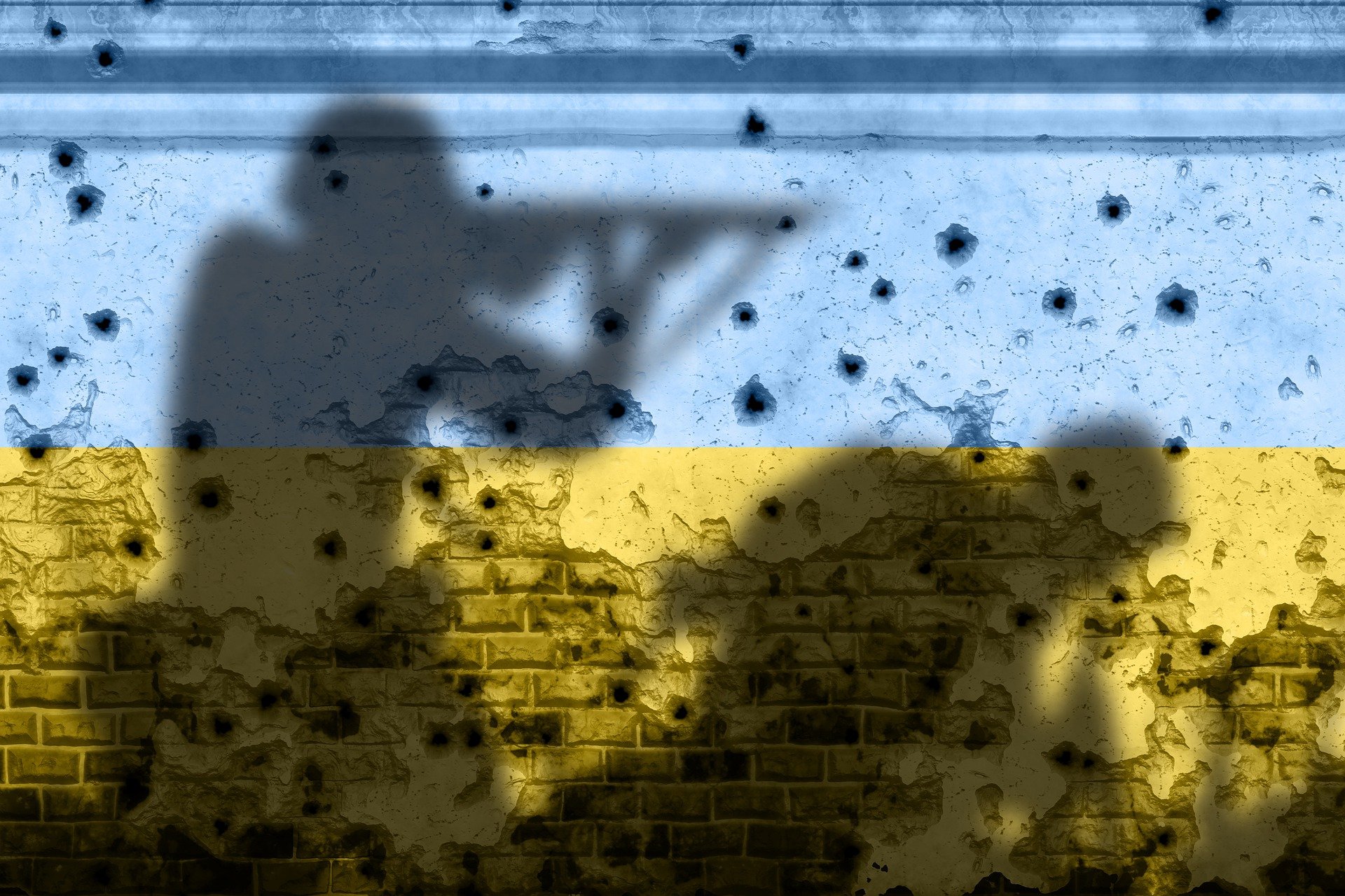Air raid sirens and explosions were heard as Russia’s offensive in Ukraine reached the capital of Kiev on Friday, reportedly surrounding the city on at least three fronts.
Reporting from Kiev, Fox News’ Trey Yinst said Russian forces had already arrived and that fighting had broken out in the city earlier on Friday, citing Ukrainian officials. Active clashes were also reported elsewhere in the country, after Moscow swept a number of cities in the north, south and east.
In a last-ditch effort to prevent the Russian advance into the southern Kherson region, Kiev was forced to demolish a major bridge into the area, according to Ukraine’s military.
While Western and Ukrainian officials say Russia’s troops are meeting stiff resistance, the Pentagon offered a much less confident assessment, saying it expects Kiev to fall within days. On Friday, the Ukrainian government barred all male citizens aged 18-60 from leaving the country and is arming its population after ordering a “general mobilization,” including conscription. Guns and ammunition have reportedly been distributed to some 18,000 civilians and reservists in preparation for a last stand in the capital city.
Over the past 24 hours, however, there has been some indication of possible negotiations between the two sides, with Ukrainian President Volodymyr Zelensky first hinting at the idea during a national address late on Thursday.
Kremlin spokesman Dmitry Peskov said that Zelensky “went out of contact” and “disappeared” after initially agreeing to talks, noting some dispute over the venue for negotiations. However, Zelensky’s press secretary later disputed that claim, saying the president “was and remains ready to talk about ceasefire and peace” and that discussions on “the place and time of the negotiation process” were already underway.
It appears the location for the talks is a major sticking point, with Russia offering Minsk – capital of its close ally Belarus – while Ukraine suggested Warsaw. Zelensky has also called on Israel to act as a mediator in the talks, although it remains unclear whether Tel Aviv would consent to the role. Ukraine’s envoy to Israel Yevgen Korniychuk confirmed the request to the New York Times, explaining “We do believe that Israel is the only democratic state in the world that has great relations with both Ukraine and Russia.” He added that while Kiev had received no clear response, Tel Aviv “didn’t say no.”
From across the political spectrum, US President Joe Biden faces calls to take further action against Russia, with Republican Rep. Adam Kinzinger (Illinois) demanding that he work with NATO to impose a no-fly zone over Ukraine to “disrupt Russia’s air ops” and “give the heroic Ukrainians a fair fight.” Such a step would risk dramatic escalation of the conflict, as the euphemistic ‘disruption’ Kinzinger spoke of would include shooting down Russian warplanes.
Across the aisle, House Speaker Nancy Pelosi is now working on legislation to ensure that $600 million in military aid already promised to Ukraine still makes it into the hands of its armed forces, and the White House has called on lawmakers to greenlight another $6.4 billion in assistance.
Pentagon spokesperson John Kirby said that the US would continue to provide military support to Kiev, but highlighted new challenges for delivery and logistics as Ukrainian authorities no longer control their own airspace. It’s unclear how that move will be interpreted by Moscow, as Putin threatened “consequences you have never seen” for any countries that interfere in the conflict.
Meanwhile, NATO announced the first-ever use of its rapid deployment force to countries that border Ukraine and Russia. Alliance chief Jens Stoltenberg did not specify what portion of the 40,000-man force would be mobilized and to what countries, but said “thousands of soldiers” would deploy by land, air and sea “to further strengthen our posture and to respond quickly to any contingency.”
The US, EU, UK and Canada each announced new sanctions personally targeting Putin and Foreign Minister Sergei Lavrov on Friday. The blacklisting of top Kremlin figures follows a wave of previous measures against Russian financial institutions, senior officials and hundreds of lawmakers. A “first tranche” of sanctions declared by Biden earlier this week aimed to “impose severe costs on the Russian economy, both immediately and over time,” while additional penalties on Thursday included “sweeping financial sanctions and stringent export controls.”
However, the American sanctions were more limited than what Biden first suggested, exempting the Russian energy sector and stopping short of cutting off its access to the SWIFT international banking system. The latter decision is at odds with Britain, Canada and other Western leaders who have demanded Moscow be locked out of the payments network.






























